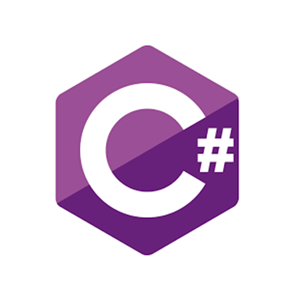Q:
C#.Net find output programs (Enumeration) | set 1
belongs to collection: C#.Net find output programs
C#.Net find output programs
- C#.Net find output programs (Data Types) | set 1
- C#.Net find output programs (Data Types) | set 2
- C#.Net find output programs (Data Types) | set 3
- C#.Net find output programs (Operators) | set 1
- C#.Net find output programs (Operators) | set 2
- C#.Net find output programs (Operators) | set 3
- C#.Net find output programs (const Keyword) | set 1
- C#.Net find output programs (this Keyword) | set 1
- C#.Net find output programs (readonly Keyword) | set 1
- C#.Net find output programs (static Keyword) | set 1
- C#.Net find output programs (static Keyword) | set 2
- C#.Net find output programs (if else) | set 1
- C#.Net find output programs (if else) | set 2
- C#.Net find output programs (if else) | set 3
- C#.Net find output programs (switch statement) | set 1
- C#.Net find output programs (switch statement) | set 2
- C#.Net find output programs (switch statement) | set 3
- C#.Net find output programs (goto) | set 1
- C#.Net find output programs (Loops) | set 1
- C#.Net find output programs (Loops) | set 2
- C#.Net find output programs (Loops) | set 3
- C#.Net find output programs (Arrays) | set 1
- C#.Net find output programs (Arrays) | set 2
- C#.Net find output programs (Arrays) | set 3
- C#.Net find output programs (default Arguments) | set 1
- C#.Net find output programs (default Arguments) | set 2
- C#.Net find output programs (Parameter Passing) | set 1
- C#.Net find output programs (Enumeration) | set 1
- C#.Net find output programs (Enumeration) | set 2
- C#.Net find output programs (Boxing & Unboxing) | set 1
- C#.Net find output programs (Structure) | set 1
- C#.Net find output programs (Structure) | set 2
- C#.Net find output programs (Structure) | set 3
- C#.Net find output programs (Classes & Objects) | set 1
- C#.Net find output programs (Classes & Objects) | set 2
- C#.Net find output programs (Classes & Objects) | set 3
- C#.Net find output programs (Constructors & Destructors) | set 1
- C#.Net find output programs (Constructors & Destructors) | set 2
- C#.Net find output programs (Constructors & Destructors) | set 3
- C#.Net find output programs (Inheritance) | set 1
- C#.Net find output programs (Inheritance) | set 2
- C#.Net find output programs (Inheritance) | set 3
- C#.Net find output programs (Interface) | set 1
- C#.Net find output programs (Interface) | set 2
- C#.Net find output programs (Method Overloading) | set 1
- C#.Net find output programs (Method Overloading) | set 2
- C#.Net find output programs (Method Overriding) | set 1
- C#.Net find output programs (Method Overriding) | set 2
- C#.Net find output programs (Method Overriding) | set 3
- C#.Net find output programs (Operator Overloading) | set 1
- C#.Net find output programs (Operator Overloading) | set 2
- C#.Net find output programs (Operator Overloading) | set 3
- C#.Net find output programs (Namespace) | set 1
- C#.Net find output programs (Namespace) | set 2
- C#.Net find output programs (Exception Handling) | set 1
- C#.Net find output programs (Exception Handling) | set 2
- C#.Net find output programs (Exception Handling) | set 3




 c# programming
c# programming
Answer 1:
Output:
Explanation:
The above program will generate syntax error because we cannot add two enumeration operands using plus '+' operator directly.
Answer 2:
Output:
Explanation:
In the above program, we created a Colors enumeration that contains RED, GREEN, YELLOW, WHITE constants. Here, the first constant is initialized with 0 and every next constant increased by 1 automatically.
There are the following values contained by above enum constants:
RED = 0, GREEN=1, YELLOW=2, WHITE=3Now come to the Main() method, here we create two enum variables C1 and C2 that are initialized with YELLOW and GREEN respectively. Then we created an integer variable C initialized with 0.
C = (int)C1 + (int)C2;In the above statement, we typecast C1 and C2 into integer and add both constant and assigned to C.
C = 2 + 1; C = 3;And then finally we printed the value of variable C on the console screen.
Answer 3:
Output:
Explanation:
In the above program, we created a Colors enumeration that contains RED, GREEN, YELLOW, WHITE constants. Here, the first constant is initialized with 0 and every next constant increased by 1 automatically.
But we assigned 2 to the GREEN then YELLOW and WHITE will be 3 and 4 respectively.
There are the following values contained by above enum constants:
RED = 0, GREEN=2, YELLOW=3, WHITE=4Now come to the Main() method, here we create two enum variables C1 and C2 that are initialized with YELLOW and GREEN respectively. Then we created an integer variable C initialized with 0.
C = (int)C1 + (int)C2;In the above statement, we typecast C1 and C2 into integer and add both constant and assigned to C.
C = 0 + 4; C = 4;And then finally we printed the value of variable C on the console screen.
Answer 4:
Output:
Explanation:
The above program will generate syntax errors because an enum cannot contain string constant.
Answer 5:
Output:
Explanation:
The above program will generate syntax errors because an enum cannot contain string constant.
need an explanation for this answer? contact us directly to get an explanation for this answer